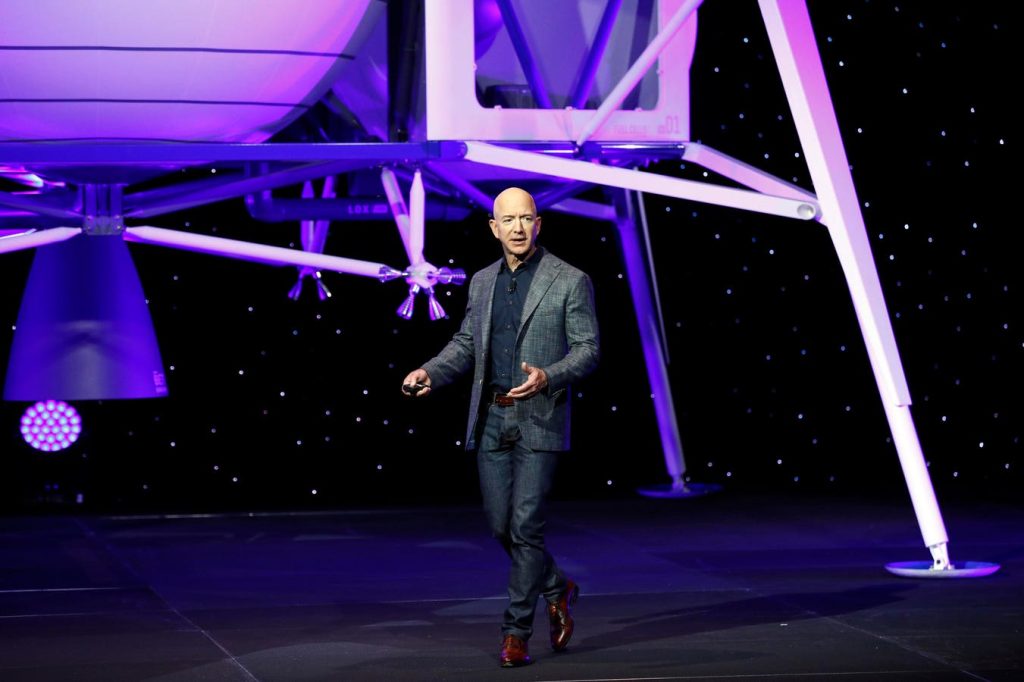Blue Origin, the space venture founded by Jeff Bezos, is poised to launch its New Glenn rocket, a significant milestone after nearly 25 years of development. This launch represents not just a technological achievement, but also a potential shift in the commercial space launch landscape, currently dominated by Elon Musk’s SpaceX. The industry welcomes competition, as SpaceX’s near-monopoly has limited choices for launching American satellites. Blue Origin’s competitive pricing strategy, offering significantly more payload capacity for a moderately higher price than SpaceX’s Falcon 9, further strengthens its position as a viable alternative. This competitive pricing strategy, combined with New Glenn’s larger payload capacity, makes it a particularly attractive option for companies deploying large constellations of satellites into low Earth orbit, especially as satellite sizes increase.
The success of New Glenn is crucial for Blue Origin, not only for commercial viability but also for securing its role in the future of space exploration and commerce. The company has invested heavily in its development, estimated at around $10 billion, primarily funded by Bezos himself. Beyond New Glenn, Blue Origin has made significant strides in developing reusable rocket technology with its New Shepard program and has created the powerful Be-4 engine, which has already been used in successful launches of United Launch Alliance’s Vulcan rocket. These achievements, alongside the development of robust manufacturing facilities, demonstrate Blue Origin’s commitment to building a sustainable and scalable space business. The company’s strategy has been characterized as “slow and steady,” contrasting with SpaceX’s more rapid, iterative approach. While this has led to a slower pace of development, it has also allowed Blue Origin to meticulously build infrastructure and technology for mass rocket launches, a capability that SpaceX achieved gradually over time.
The impending launch also carries political implications. The return of Donald Trump to the White House, coupled with his close relationship with Elon Musk, raises concerns about potential shifts in government spending and regulations that could favor SpaceX. Trump’s nominee to lead NASA, Jared Isaacman, has existing ties to SpaceX, further fueling these concerns. While Bezos has expressed confidence that Musk will not leverage his political influence to unfairly benefit SpaceX, the situation remains uncertain. This political backdrop adds another layer of complexity to Blue Origin’s launch and its future prospects, particularly concerning government contracts.
The launch of New Glenn represents more than just a single rocket launch; it marks Blue Origin’s entry into the competitive market of heavy-lift orbital launches. It’s a direct challenge to SpaceX’s dominance, offering a comparable and potentially more cost-effective alternative for launching large payloads into orbit. This competition is not only beneficial for the space industry as a whole, by providing more choices and driving innovation, but also for the U.S. government, which gains another reliable option for launching critical national security and scientific payloads. Blue Origin’s success in this venture will be a crucial factor in shaping the landscape of the commercial space industry and potentially opening up new avenues for space exploration and utilization.
Beyond the immediate competition with SpaceX, Blue Origin’s long-term vision extends far beyond simply launching satellites. Bezos envisions a future where space becomes a hub for manufacturing and resource extraction, eventually leading to a significant off-world economy. This vision requires dramatically reducing the cost of space travel, a goal that New Glenn is designed to help achieve. By offering a more cost-effective launch platform, Blue Origin aims to facilitate the growth of this space-based economy. This ambition is not just about commercial gains; it represents a fundamental shift in humanity’s relationship with space, moving from exploration and scientific research to active utilization and settlement.
The upcoming launch of New Glenn is a pivotal moment for Blue Origin, marking its arrival as a significant player in the commercial space industry. It signifies a challenge to SpaceX’s current dominance and introduces a new dynamic of competition, which is likely to accelerate innovation and drive down the cost of accessing space. The political landscape, with potential changes in government regulations and spending, adds another layer of uncertainty and challenge. However, Bezos’ long-term vision, focused on creating a space-based economy, provides a compelling narrative for Blue Origin’s ambition and highlights the potential transformative impact of its success. The launch of New Glenn, therefore, represents not just a single event, but a crucial step towards a future where space plays a much larger role in human activities.

